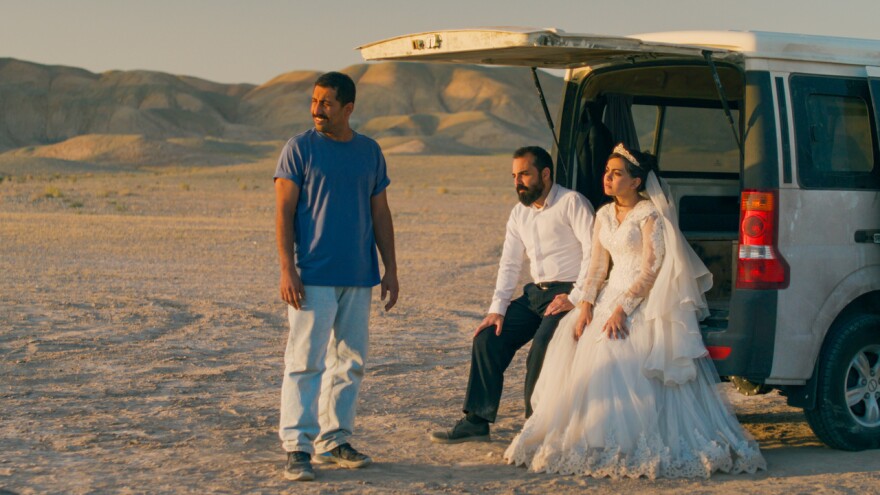Some of the best, most exciting, most righteously angry cinema of recent years has come out of Iran, where filmmakers have found imaginative ways of sidestepping a government that punishes artists who criticize it. What we’ve gotten are a lot of pure but engrossing portraits of contemporary life that also function as clear-eyed allegories for the ways authoritarianism crushes that life.
Jafar Panahi is one of those filmmakers, and his work gleefully stares down the threat of artistic suppression. The Iranian government banned him from producing films and placed him on house arrest, but instead of silencing him, it enlivened him: He still managed to produce several fascinating and moving hybrids of narrative and documentary, including This Is Not a Film, a video diary of his time as an exile in his own apartment.
Panahi’s latest, It Was Just an Accident, is his first film in nearly two decades in which the director does not appear as a version of himself, and the first since the mid-2000s that you wouldn’t categorize as docu-fiction. And yet it’s impossible not to think about his history with Iranian authorities as its story unfolds, and in its own backhanded way, it’s arguably his most flagrantly political work — and unquestionably his angriest.
Like earlier Panahi films, this one was made in secret, so it’s shot mostly in the desert, on desolate backroads, and inside vans and cars. It opens with a man, his wife and their young daughter driving at night. The area is teeming with wild dogs, and they hit one. Their car then breaks down a couple miles from home but right outside a garage. The man goes inside to make a call.
One of the owners of the garage recognizes the man, and it will be awhile until we know how. The rest of the movie involves the garage owner on a mad scramble to verify the identity of his late night visitor, and this sets up an exploration of the nature of vengeance, the repercussions of violence and the question of whether forgiveness is possible — or, for that matter, even reasonable.
I didn’t know the details of the plot before I saw It Was Just an Accident, so I’ll keep them from you, as well. The movie was financed by a Parisian company, which I mention because its French title is slightly different from the English title, but that difference is significant: it translates to “A Simple Accident.” This is, in many ways, a simple movie. That’s not to slight it, because its simplicity gives it power.
Panahi doesn’t clutter up his story with too many supporting characters, subplots or needless dramatic complications; it walks a straight line from the first impulsive decision to the last. It builds to a final confrontation, filmed in a single unbroken take, that feels like Panahi unequivocally standing up to the regime that has kept him down. The characters may as well be delivering their blistering dialogue directly into the camera.
It Was Just an Accident, which won the Palme d’Or at this year’s Cannes Film Festival, feels like a companion piece to last year’s The Seed of the Sacred Fig, about a middle-class Iranian family torn apart by government-sanctioned violence. It doesn’t have the overwhelming power of that movie, but it’s totally absorbing, and it has a final shot that’s just about perfect. I’ll leave it for you to discover.
Nathan Weinbender is a film critic and one of the regular co-hosts for Spokane Public Radio’s “Movies 101” heard Friday evenings at 6:30 and Saturday afternoons at 2 here on SPR News (KPBX).


